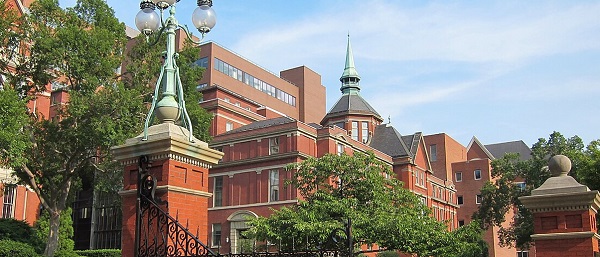Opinion
Red Deer – Lacombe MP Blaine Calkins calls on Prime Minister Justin Trudeau to resign

What We Know About Trudeau’s Latest Ethics Scandal
BLAINE CALKINS
Over the past several weeks Canadians have been shocked at the details coming to light regarding Justin Trudeau’s WE Scandal. Justin Trudeau and the Kielburgers have been happy to benefit from each other for years. While they are quick to downplay their relationship, the facts tell a different story. According to WE Charity, Justin Trudeau and his family have participated in over 50 WE Events where they have been able to share their political message with young Canadians.
In 2017 WE created a campaign style ad featuring Justin Trudeau for Canada 150 and even pressured employees to go to a political event for the Minister of Finance in his Toronto riding. The Kielburger brothers have donated to the Liberal Party in the past, and under the Trudeau government WE has received upwards of $5.5 million in government funding.
This reciprocal relationship is concerning all on its own, before even considering the current scandal regarding the Canada Student Service Grant, Justin Trudeau and WE. The twists and turns in the story can be difficult to track, but it is clear that Justin Trudeau and former Finance Minister Bill Morneau have once again failed to live up to their legal obligations laid out in Canada’s conflict of interest laws. Here is what we know so far.
In April, WE sent an unsolicited proposal for a youth entrepreneurship program to Minister Chagger and Minister Ng. Ten days later WE received a call from Rachel Wernick, a senior bureaucrat with Employment and Social Development Canada (ESDC) about the yet to be announced Canada Student Service Grant (CSSG). When the program was announced to the public a few days later WE co-founder Craig Kielburger sent Ms. Wernick a proposal to administer the grant that same day.
According to the Kielburgers someone at the Prime Minister’s Office (PMO) contacted them the next day about delivering the program, which they later recanted claiming it was a public servant who contacted them. Ms. Wernick is credited as being the public servant who recommended that WE was the only organization that could deliver the program.
On June 25th WE Charity was announced as the partner for the $900 million CSSG program, and Canadians were told they would receive $19.5 million to administer it. When asked, Trudeau suggested there was no conflict of interest because he and his wife had never been paid by the organization. A few days later Conservatives asked the Auditor General to probe the deal since parliamentary oversight was hindered by the program being outsourced, and due to concern over the well documented relationship between Trudeau and the Kielburgers.
By July 3rd Mark and Craig Kielburger announced that WE would be giving up the contract to administer the CSSG. On the same day, the Ethics Commissioner confirmed that he would be starting an investigation into Justin Trudeau for the third time. Less than a week later WE confirmed that the Prime Minister’s Mother, Margaret Trudeau had been paid $312,000 for 28 appearances since 2016 and that his brother, Alexandre Trudeau, was paid $40,000 for 8 events in 2017-2018. They also acknowledged that the Prime Minister’s wife, Sophie Gregoire Trudeau had received $1,400 for an appearance in 2012.
We later found out that on top of those fees WE Charity also paid an additional $212,846 in expenses between the three members of the Trudeau family. This brings the total remuneration to over $566,000. This revelation, in part, led to the Conservatives writing to the Commissioner of the RCMP to request that they look into this matter as it pertains to potential criminal code violations.
The Prime Minister isn’t the only one with an apparent conflict of interest in this matter, with former Minister Morneau also having close family ties with WE. Like the Prime Minister, he did not recuse himself despite the fact that his one daughter works for WE and another has been a speaker in the past and received a book endorsement. This led to the Ethics Commissioner launching an investigation into former Minister Morneau as well.
At an appearance before the Finance Committee former Minister Morneau would later go on to acknowledge that he and his wife had recently made two large donations, roughly $50,0000 each, and that he had also just written a cheque for over $41,000 to reimburse WE for expenses he and his family incurred on two vacations to Africa and South America, where they visited WE projects. WE later confirmed that the complementary trip was offered to former Minister Morneau and his family because of their history of significant donations to similar programs. These revelations led to the Conservative caucus calling for the now former Minister to resign.
The Finance Committee and the Ethics Committee began to look into this latest scandal, and the testimony and information they have received has painted a confusing and troubling picture. They uncovered a number of very concerning details before the Prime Minister prorogued Parliament in order to shut down the committees.
· WE stood to collect $45.53 million in fees, over double what was initially stated.
· The program, originally announced at over $900 million, was actually contracted out at $544 million instead. Why the discrepancy?
· The Clerk of the Privy Council stated that there were no red flags when considering WE, but that the Public Service didn’t probe the organizations finances. This is quite odd.
· The President of the Public Service Alliance disputed that only WE could have delivered the CSSG, stating that to say the Public Service was unable to was insulting. He pointed to the various government grant programs, Canada Summer Jobs and the Canada Service Corps as comparable programs. The theory that only WE could handle the program was further dismantled when it turned out that they had to subcontract part of the program because they weren’t able to deliver it in French.
· The contract for the CSSG wasn’t actually with WE Charity, but with WE Charity Foundation, a shell foundation that had no previous experience in delivering these types of programs.
· The former Chair of the Board at WE Charity testified that she had been forced to resign by Craig Kielburger for requesting financial documents from WE Executives to justify the layoff of hundreds of employees.
· The Kielburger brothers testified, claiming that they were running the program as a favour to Canada, and that their organization was to be reimbursed for expenses, but not make money off of the program. In a leaked document, a draft budget dated May 4th outlined some expenses including for staff salary. This included 175 program managers at $30,0000 each for 4.5 months work, ten supervisors at $45,000 each for 5.5months work, five group leaders at $70,000 each for 6 months work, and two project leaders for $125,000 for eight months work.
· WE Charity started to incur eligible expenses on May 5th, despite Cabinet not approving the program until May 22nd. This was being done with the full knowledge of ESDC, and allegedly at the financial liability of WE.
· Trudeau testified that he only found out about WE’s involvement on May 8th, shortly before it was set to be discussed at Cabinet. He claims that he removed it from the agenda and asked the public service to complete additional due diligence given his family connection to WE. He did not contact the Ethics Commissioner despite the concerns. This additional due diligence did not unearth any of the problems disclosed by the former Chair of the Board. It is noteworthy that no Minister, prior to the Prime Minister making his claim, had a story that would corroborate this feeble explanation.
The Prime Minister’s Chief of Staff confirmed that a handful of employees in PMO were aware of WE’s involvement and had interactions with the organization in the lead up to the approval. This included an interaction on May 5th, the day WE started incurring eligible expenses. So far, every time someone has come forward to try and explain away the Liberal’s latest mess, Canadians are left with more questions than when they started. Canadians deserve answers, and my Conservative colleagues and I are committed to finding them using every tool at our disposal.
While the studies at committee may have been temporarily halted by Trudeau’s prorogation Conservatives will continue to investigate this matter, and pursue every whiff of corruption like when we called on the Elections Commissioner to look into the political benefits that the Liberals have been given by WE. While the Prime Minister may be attempting to prevent Canadians from knowing the truth, Members of the Finance committee received thousands of heavily redacted documents from the Liberal government on the same day that Trudeau prorogued Parliament. They paint a very different picture of how WE came to be selected for this program than the one that the Liberals have offered up.
These documents suggest that the Minister of Diversity and Inclusion and Youth told WE to develop a proposal for a summer service opportunity before the CSSG was even announced. They go on to claim that the former Minister of Finance was “besties” with WE and that senior members of the Prime Minister’s office were involved in the development of the program and were having conversations with WE from an early stage. You can see these documents for yourself at wedocuments.ca.
The timeline of Mr. Trudeau’s version of events simply doesn’t add up. The CSSG was announced on April 22nd. A member of PMO spoke with WE about their proposal on May 5th, the same day they started to charge expenses for administering the program, but Cabinet wouldn’t approve the program for two and a half weeks.
Why was a charity that had to recently lay off hundreds of employees due to financial hardship related to COVID-19 so willing to accept the liability of starting the program without approval? Why were they so sure they would be approved? Why were they told they could start charging expenses before approval?
To answer that, you only need to look at the cozy relationship between Justin Trudeau, former Minister of Finance, Bill Morneau, the Liberal Party and WE. Now that the former Minister Bill Morneau has resigned and more than 5000 pages of documents have been released for review, Canadians are hungrier for that truth than ever before. The Liberals are banking on Canadians forgetting about this scandal during their prorogation and hoping that they can change the channel later this month with a new Throne Speech, but it isn’t going to work. Despite prorogation and all of the confusion and misdirection, one thing is absolutely clear – Justin Trudeau must resign for his part in this scandal.
Dr John Campbell
Cures for Cancer? A new study shows incredible results from cheap generic drug Fenbendazole

From Dr. John Campbell
You won’t hear much about Fenbendazole from the regular pipeline of medical information. There could be many reasons for that. For one, it’s primarily known for it’s use in veterinary medicine. Somehow during COVID the medical information pipeline convinced millions that if a drug is used on horses or other animals it couldn’t work for humans. Not sure how they got away with that one considering the use of animal trials for much of modern medical history.
Another possible reason, one that makes at least as much sense, is that there’s no business case for Fenbendazole. It’s been around for decades and its patent expired in the early 1990’s. That means it’s considered a generic drug that a pharmaceutical company from India could (and does) produce in mass quantities for very little profit (compared to non-generics).
So Fenbendazole is an inexpensive, widely accessible antiparasitic drug used in veterinary medicine. During the COVID pandemic a number of doctors, desperate for a suitable treatment, tried it with reportedly great levels of success. Over some time they discovered it might be useful elsewhere. Some doctors are using Fenbendazole to help treat late stage cancer. Often this is prescribed when the regular treatments clearly aren’t working and cancer is approaching or has already been declared stage 4.
What they’ve found at least in some cases is astounding results. This has resulted in a new study which medical researcher Dr. John Campbell shares in this video.
Energy
It should not take a crisis for Canada to develop the resources that make people and communities thrive.

From Resource Works
Canada is suddenly sprinting to build things it slow-walked for a decade.
“Canada has always been a nation of builders, from the St. Lawrence Seaway to Expo 67. At this hinge moment in our history, Canada must draw on this legacy and act decisively to transform our economy from reliance to resilience. We are moving at a speed not seen in generations,” announced Prime Minister Mark Carney at the end of August.
He was echoed by British Columbia Premier David Eby shortly after.
“There’s never been a more critical time to diversify our economy and reduce reliance on the U.S., and B.C. is leading the way in Canada, with clean electricity, skilled workers and strong partnerships with First Nations,” the premier stated after his government approved the Ksi Lisims LNG project, led by the Nisga’a nation.
In the face of President Donald Trump’s tariffs, Ottawa has unveiled a first wave of “national projects” that includes an expansion of LNG Canada to 28 million tonnes a year, a small modular reactor at Darlington, two mines, and a port expansion, all pitched as a way to “turbocharge” growth and reduce exposure to a trade war with the United States.
The list notably excludes new oil pipelines, and arrives with rhetoric about urgency and nation-building that begs a simple question: why did it take a crisis to prioritize what should have been routine economic housekeeping?
The most tangible impact of resource projects can be observed in the impact it has on communities. The Haisla Nation is enjoying an economic renaissance with their involvement in the LNG Canada project on their traditional lands, which became operational in June.
Furthermore, the Haisla are set to unveil their own facility, Cedar LNG, in 2028. Already, the impact of employment and strong paycheques in the community is transforming, as former Haisla Chief Councillor Crystal Smith as attested many times.

Former Haisla Chief Councillor Crystal Smith.
“Let’s build a bright and prosperous future for every Canadian and every Indigenous person that wants to be involved, because change never happens inside of our comfort zones, or the defensive zone,” said Crystal Smith at a speech delivered to the 2025 Testimonial Dinner Award on April 24 in Toronto.
Fortunately, the new pro-resource posture has a legislative backbone. Parliament passed the One Canadian Economy Act to streamline approvals for projects deemed in the national interest, a centrepiece of the government’s plan to cut internal trade barriers and fast-track strategic infrastructure.
Supporters see it as necessary in a period of economic rupture, while critics warn it risks sidelining Indigenous voices in the name of speed. Either way, it is an admission that Canada’s previous processes had become self-defeatingly slow.
British Columbia offers a clear case study. Premier David Eby is now leaning hard into liquefied natural gas. His government and Ottawa both approved the Nisga’a Nation-backed Ksi Lisims LNG project under a “one project, one review” approach, with Eby openly counting on the Nisga’a to build support among neighbouring nations that withheld consent.
It is a marked turn from earlier NDP caution, framed by the premier as a race against an American Alaska LNG push that could capture the same Asian markets.
Yet the pivot only underscores how much time was lost. For years, resource projects faced overlapping provincial and federal hurdles, from the Impact Assessment Act’s expanded federal reach to the 2018 federal tanker ban on B.C.’s north coast.
Within B.C., a thicket of regulations, policy uncertainty, and contested interpretations of consultation obligations chilled investment, while political positions on pipelines hardened. Industry leaders called it “regulatory paralysis.” These were choices, not inevitabilities.
The national “go-fast” stance also arrives with unresolved tensions. Ottawa has installed a Calgary-based office to clear and finance major projects, led by veteran executive Dawn Farrell, and is touting the emissions performance of LNG Canada’s expansion.

Dawn Farrell, head of the Major Projects office in Calgary.
At Resource Works, we wholeheartedly endorsed the move, given the proven ability and success of Dawn Farrell in the resource industry. It must also be acknowledged that the major projects office will only be an office unless it meaningfully makes these projects happen faster.
A decade that saw eighteen B.C. LNG proposals produced one major build, and moving to LNG Canada’s second phase is entangled with power-supply constraints and policy conditions. That slow cadence is how countries fall behind.
If the current urgency becomes a steady habit, Canada can still convert this scramble into lasting capacity. If not, the next shock will find us sprinting again, only further from the finish line.
Resource Works News
-

 International2 days ago
International2 days agoIs America drifting toward civil war? Joe Rogan thinks so
-

 Alberta24 hours ago
Alberta24 hours agoChatGPT may explain why gap between report card grades and standardized test scores is getting bigger
-

 COVID-192 days ago
COVID-192 days agoMajor new studies link COVID shots to kidney disease, respiratory problems
-

 Censorship Industrial Complex2 days ago
Censorship Industrial Complex2 days agoEU’s “Democracy Shield” Centralizes Control Over Online Speech
-

 Fraser Institute1 day ago
Fraser Institute1 day agoCourts and governments caused B.C.’s property crisis—they’re not about to fix it
-

 Alberta14 hours ago
Alberta14 hours agoFederal budget: It’s not easy being green
-

 International2 days ago
International2 days agoUS announces Operation Southern Spear, targeting narco-terrorists
-

 Education22 hours ago
Education22 hours agoJohns Hopkins University Announces Free Tuition For Most Students




